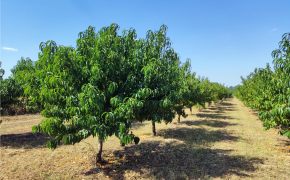Global
- Meeting Report of the June 2018 OECD Conference on Genome Editing Published
- China Approves First New Biotechnology Traits in Imported Crops Since 2017
Meeting Report of the June 2018 OECD Conference on Genome Editing Published
On July 15, 2019, the Meeting Report of the June 2018 OECD conference on “Genome Editing: Applications in Agriculture—Implications for Health, Environment, and Regulation” was published online. The report provides an overview of genome editing techniques and outlines the OECD’s roles and activities in this area. The report also describes global developments related to genome editing in agriculture, including crops and animals, and summarizes regulatory approaches in Argentina, Australia, Canada, the European Union, India, and the United States.
China Approves First New Biotechnology Traits in Imported Crops Since 2017
On January 8, 2019, China’s Ministry of Agriculture and Rural Affairs (MARA) approved a group of new herbicide tolerance and insect resistance traits in soybean, corn, and canola crops imported for processing into animal feed and vegetable oil. Prior to these approvals, China’s most recent approval for the import of biotechnology traits in crops for processing had been in 2017.
MARA’s approvals are consistent with the Ministry’s roadmap to commercialize genetically engineered (GE) crops, which in turn is drawn from China’s wider policy to introduce biotechnology to commercially grown cotton, corn, and herbicide-tolerant soybeans by 2020, as described in China’s Thirteenth Five-Year Plan. MARA’s roadmap prioritizes review of non-food imported GE crops like cotton, followed by imported GE crops for indirect food-use like soybeans and corn, and finally imported GE food-use crops like rice and wheat. China has not yet approved domestic cultivation and production of any GE crops other than GE papaya and cotton.
MARA is a newly formed ministry that integrates the former Ministry of Agriculture with functions under the Ministry of Commerce and Ministry of Finance. MARA has imposed new requirements for GE crop developers, including conducting additional, China-directed trials and studies with MARA-designated institutes. This requirement was not shared with the World Trade Organization (WTO) for advance comment. In addition, MARA did not provide a transition period to implement the new requirements, and as a result, developers are reportedly facing confusion in communicating timeframes with foreign trade partners.










